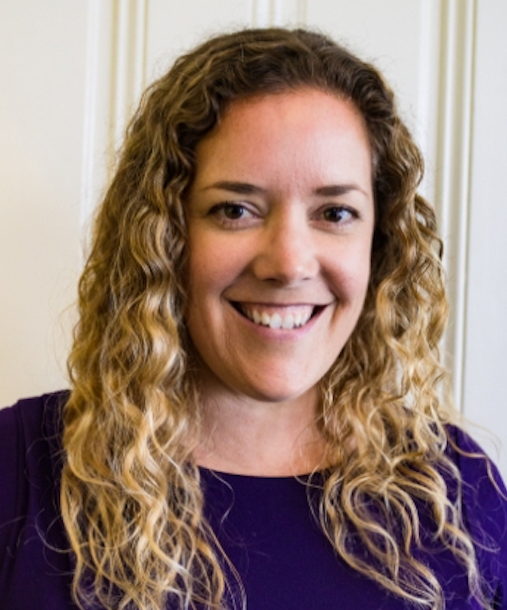Opinion: We can equip ourselves with the tools to save our kids
By Danielle De Smeth
Last year the Thacher School in Ojai turned to a team of lawyers at Munger, Tolles & Olson to document what many already knew: The school failed to properly protect its students and alumni — including by failing to follow up in some instances on students’ concerns about or reports of sexual misconduct.
Thacher’s board of trustees will continue to retain the law firm’s services to receive reports of any sexual misconduct through the end of September 2021. Thacher Board Chair Dan Yih says that after September any alumni or students who wish to make an anonymous report of sexual misconduct can contact [email protected].

Anyone who was assaulted should make a report with the Ventura County Sheriff’s Department. That’s true in any case, but especially here, where Thacher acknowledges how a long history of “certain aspects of [the] school’s culture — including gender bias and a failure to adequately address sexuality in general — inhibited reporting of sexual misconduct and impeded appropriate responses to reports of sexual misconduct.”
While acknowledging that this report was made public, organizations like Thacher typically prefer to handle these matters in-house. Whatever the motivations in commissioning the report, this introspective action does not occur without substantial pressure.
Our civil legal system provides another pressure point. Far too often, law firms like mine are forced to file lawsuits against schools and administrators for failing to protect their students from sexual assault.
In 2020, California law expanded the ability for childhood victims to file a lawsuit until their 40th birthday, or within five years of the discovery of the abuse. The recent law also opened up a three-year window for the revival of any claims that would have previously been time-barred.
The broader questions for our community are: why does this keep happening and what can we do to stop it?
One answer is that humans are uncomfortable and ill-equipped to confront difficult topics like sexual abuse. Rather than see the monstrous, we create alternate explanations for what a dispassionate observer would report as disturbing.
Almost invariably, at least one other person is aware when a child is victimized. There are almost always signs that, if heeded, could prevent grooming and assault.
You rarely find a case of sudden sexual violence between strangers in our society. These situations involve familiarity: Abusers worm their way into a position of trust and power. This adds a layer of emotional complexity that confounds triers of fact.
That we commonly place our faith in adults who abuse children makes the matter all the more shocking and difficult to accept. Disbelief, guilt and shame factor in, causing us to shy away from anything flag-raising: a willful blindness to the caressing of a shoulder, excessive text messaging, and personal one-on-one time.
Malcolm Gladwell explains this behavior in his book “Talking to Strangers: What We Should Know About the People We Don’t Know.” Spoiler alert: He suggests we don’t really know anyone. Gladwell says humans default to an assumption that others are telling the truth, relying on psychologist Tim Levine’s truth-fault theory.
“Levine argues that over the course of evolution, human beings never developed sophisticated skills to detect deception because there is no advantage to spending your time scrutinizing the words and behaviors of those around you,” Gladwell writes. “What we get in exchange for being vulnerable to an occasional lie is efficient communication and social coordination.”
Social institutions exist because we believe they provide some greater good. Family, marriage, religion, government, economic, education, law — these institutions optimally provide emotional support, lend moral guidance, and ensure healthy food and clean water is enjoyed in a safe environment. They teach life-sustaining skills so that each person can be a contributing member of society and if our codes are violated, be held to account.
But the default trust Gladwell describes leads to ignorance, cover-up and perpetuation of systemic abuses. Case in point: the Thacher School. In hindsight, the missed signs are easily recognized. From the report:
“The School failed to prioritize the well-being of students when it hired individuals alleged to have engaged in sexual misconduct, failed to follow up on students’ concerns about these individuals, and failed to fully confront the realities of sexual misconduct. The School failed to address rumors or narratives that cast doubt on survivors’ credibility and allowed their experiences to be silenced or hidden. The School’s failures further deepened survivors’ trauma. The School’s failures were perceived by many in the community as choosing the reputation and perception of the School and of the perpetrators over the well-being of the survivors.”
While it is easy to blame Thacher’s profit motive in perpetuating these abuses, the malignant behavior runs deeper. We see cover-up of damaging behavior in public and private institutions alike, in every community of all socio-economic status. Elements of tribal pride, deeply rooted in our senses of belonging, identity and security, prevent us from honestly assessing ourselves and our group.
The only way the abuse will stop is to educate ourselves and our kids about how to address uncomfortable topics and speak the truth. Munger, Tolles & Olson’s recommendations to the Thacher school are advisable for myriad organizations, including:
• Provide trauma detection and trauma-informed interview training to staff;
• Improve education for students and parents on various topics related to sexual misconduct, including affirmative consent, healthy relationships, prevention and response to sexual harassment and sexual assault, and recognizing grooming behavior by adults;
• Improve mandatory reporter training.
If we don’t give our children the tools to interrupt harmful historic and institutionalized behavior, they will repeat the mistakes of their parents. Having the courage to engage in a difficult conversation may alleviate or prevent suffering by someone you care for and someone you may never meet.
• Danielle De Smeth is managing partner at the Law Offices of Bamieh & De Smeth in Ventura.









